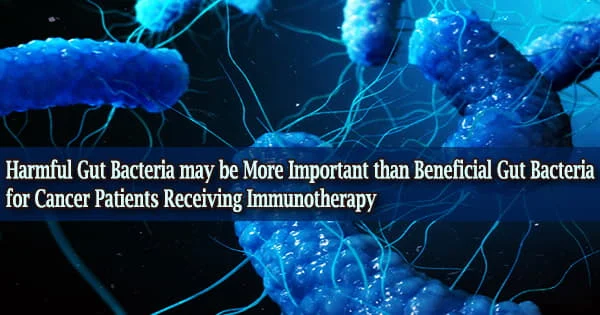Melanoma patients who are getting therapy to help their immune system kill cancer cells respond to it differently depending on the sorts of microbes in their gut, according to new research, and the microbes that obstruct therapy have a greater influence than the ones that aid it.
Researchers from Oregon State University, the National Cancer Institute, the Frederick National Laboratory for Cancer Research, and the University of Pittsburgh collaborated on the study, which was published today in Nature Medicine.
According to Andrey Morgun of the OSU College of Pharmacy, the research is a significant step forward in the fight against a variety of cancers, including melanoma, the most fatal form of skin cancer.
“Our findings shed new light on the highly complicated interaction between the gut microbiome and cancer immunotherapy response and set a course for future studies,” he said.
Melanoma is the fifth most frequent malignancy in the United States. According to the American Cancer Society, over 100,000 new melanoma cases will be diagnosed in the United States this year, with over 7,000 of those individuals predicted to die.
Melanoma is one of the most aggressive tumors, and it kills people by spreading to other organs like the liver, lungs, and brain.
We established multiple microbiotypes and some of them were clearly correlated with response to cancer immunotherapy. Two microbial signatures one comparatively heavy with Lachnospiraceae species, the other comparatively heavy with Streptococcaceae species were connected to favorable and unfavorable clinical response, respectively.
Andrey Morgun
The new research uses an immunotherapy strategy known as immune checkpoint blockade, or ICB, which has changed the treatment of melanoma and cancer in general.
Inhibitor medications are used in ICB therapy to block proteins termed checkpoints, which are produced by specific immune system cells, such as T cells, as well as some cancer cells.
Checkpoints help restrain immune responses from becoming overly aggressive, but they can also inhibit T cells from destroying cancer cells. As a result, when checkpoints are inhibited, T cells are better able to attack cancer cells.
According to Morgun, ICB has been a “game-changer” in cancer therapy, and several studies have indicated that a patient’s gut microorganisms play a role in how well they respond. The microbiome of the human gut is a complex population of around 10 trillion microbial cells that comprise roughly 1,000 different bacterial species.
Morgun and colleagues analyzed data from different cohorts of melanoma patients who were receiving anti-programmed cell death protein therapy, or anti-PD-1 therapy, a type of ICB.
They utilized a computer modeling methodology called transkingdom network analysis, which Morgun and Natalia Shulzhenko of Oregon State’s Carlson College of Veterinary Medicine devised, among other things, to figure out which bacteria were linked to better or poorer treatment responses.
“We established multiple microbiotypes and some of them were clearly correlated with response to cancer immunotherapy,” Morgun said. “Two microbial signatures one comparatively heavy with Lachnospiraceae species, the other comparatively heavy with Streptococcaceae species were connected to favorable and unfavorable clinical response, respectively.”
The findings also imply that around a year after treatment begins, the gut microbiota becomes a dominating determinant in therapy response, and that the microorganisms that hinder therapy appear to play a larger role than those that help it, he noted.
The study’s corresponding authors are Amiran Dzutsev and Giorgio Trinchieri of the National Cancer Institute and Hassane Zarour of the University of Pittsburgh. It was funded by the National Institutes of Health and the National Cancer Institute.





